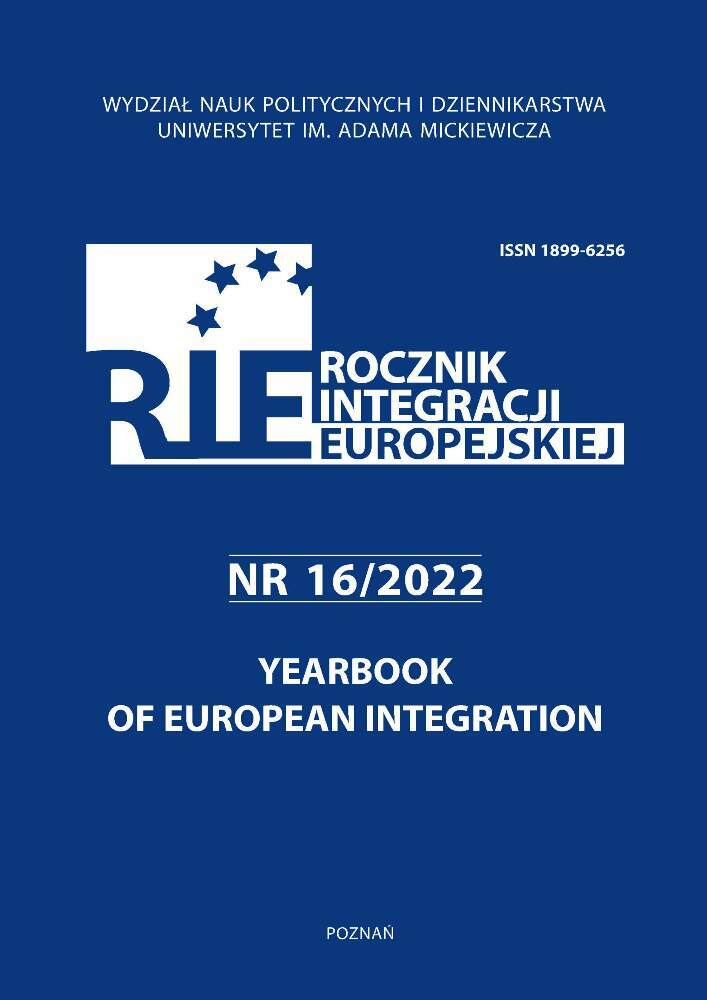Abstract
The published article analyses the distrust of governments in the votes of the European Union. The article sets goals. M of them was a description of the short-term trend for 2017–2021 and another point of distrust of national governments in the European Union countries. The second is the answer to the question of the perceived incompetence of governments over poly distrust. The decision in the government was made to control the threshold of the claimed incompetence in 2021 by the national states of the European Union countries on their distrust of them. Easy Eurobarometer test was done. Indicators one indicated that the pandemic in the first period of the study of government growth growth, and the successor in the longer term of maintenance is not national governments. Detailed analysis of the evaluation in the even parity clause, the perception of the incompetence of the government technician, the victory in the battles with Mr. COVID-19, that is, it is the result of negative policies. Technical condition analysis for European countries.
References
Bertsou E. (2019), Rethinking political distrust, "European Political Science Review", nr 11. DOI: https://doi.org/10.1017/S1755773919000080. DOI: https://doi.org/10.1017/S1755773919000080
Budzyński Ł. (2019), Zjawisko uogólnionej nieufności politycznej w Polsce i Rosji, "Studia Wschodnioeuropejskie", nr 11. DOI: https://doi.org/10.31971/24500267.11.5. DOI: https://doi.org/10.31971/24500267.11.5
Citrin J., Stoker L. (2018), Political Trust in a Cynical Age, "Annual Review of Political Science", nr 21. DOI": https://doi.org/10.1146/annurev-polisci-050316-092550. DOI: https://doi.org/10.1146/annurev-polisci-050316-092550
Davies B., Lalot F., Peitz L., Heering M. S., Ozkececi H., Babaian J., Kaya D. H., Broadwood J.,Abrams D. (2021), Changes in political trust in Britain during the COVID-19 pandemic in 2020: integrated public opinion evidence and implications, "Humanities Social Science Communications", nr 8/166, https://www.nature.com, 10.01.2022. DOI: https://doi.org/10.1057/s41599-021-00850-6. DOI: https://doi.org/10.1057/s41599-021-00850-6
Edelman Trust Barometer 2020.
Flash Eurobarometer 500 Public opinion in the EU regions Data annex, wrzesień-październik 2021.
Hardin R. (2004), Distrust: Manifestations and Management, w: Distrust, red. R. Hardin, Russell Sage Foundation, New York.
Hardin R. (2009), Zaufanie, Warszawa.
Hetherington M. J., Rudolph T. J. (2018), Political trust and polarization, w: The Oxford Handbook of Social and Political Trust, red. E. M. Uslaner, Oxford University Press. DOI: https://doi.org/10.1093/oxfordhb/9780190274801.013.15. DOI: https://doi.org/10.1093/oxfordhb/9780190274801.013.15
Jennings W., Stoker G., Valgarðsson V., Devine D., Gaskell J. (2021), How trust, mistrust and distrust shape the governance of the COVID-19 crisis, "Journal of European Public Policy", nr 28(8). DOI: https://doi.org/10.1080/13501763.2021.1942151. DOI: https://doi.org/10.1080/13501763.2021.1942151
Levi M., Stoker L. (2000), Political Trust and Trustworthiness, "Annual Review of Political Science", nr 3. DOI: https://doi.org/10.1146/annurev.polisci.3.1.475. DOI: https://doi.org/10.1146/annurev.polisci.3.1.475
Luhmann N. (1979), Trust and power.
Newton K., Stolle D., Zmerli S. (2018), Social and Political Trust, w: The Oxford Handbook of Social and Political Trust, red. E. M. Uslaner, Oxford University Press. DOI: https://doi.org/10.1093/oxfordhb/9780190274801.013.20. DOI: https://doi.org/10.1093/oxfordhb/9780190274801.013.20
Sztompka P. (2007), Zaufanie. Fundament społeczeństwa, Wydawnictwo Znak, Kraków.
Ullmann-Margalit E. (2004), Trust, distrust, and in between, w: Distrust, red. R. Hardin, Russell Sage Foundation, New York.
License
Copyright (c) 2022 Łukasz Budzyński

This work is licensed under a Creative Commons Attribution 4.0 International License.

